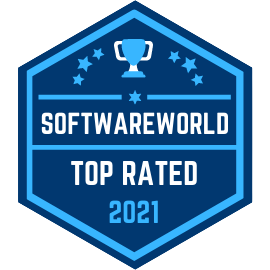Creating engaging customer experiences is a core function of marketing organizations, and personalized marketing is becoming an increasingly important input. Tailoring content to match each customer’s needs and preferences allows marketing organizations to increase engagement, loyalty, and marketing effectiveness.
Tailored Content Helps Marketing Organizations:
- Create a more engaging customer experience: When customers receive content that is tailored to their needs and preferences, they are more likely to pay attention to the content and take action. This can lead to increased engagement with the organization’s products or services.
- Build customer loyalty: When customers feel that an organization understands their individual needs and preferences, they are more likely to feel a sense of loyalty to the organization. This can lead to increased retention rates and positive word-of-mouth marketing.
- Improve the effectiveness of marketing campaigns: By creating content that is tailored to each customer segment, organizations can improve the response rates of their marketing campaigns.
Using the large volumes of data generated by companies and their customers, machine learning can help marketing organizations optimize their marketing efforts by identifying patterns, predicting outcomes, and prescribing actions to create effective marketing campaigns. By analyzing customer data such as purchase history, website behavior, and demographic information, organizations can create personalized marketing messages that resonate with each customer. While there are countless opportunities to leverage machine learning to improve marketing operations, this article will cover three specific use cases in more detail.
Machine Learning Applications for Tailored Marketing Content:
- Customer Segmentation
- Customer Churn
- Recommendation Engines
Customer Segmentation is the process of dividing customers into groups based on shared characteristics such as age, gender, behavior, and interests. By using machine learning algorithms, organizations can analyze large volumes of customer data and identify patterns and trends that can be used to create effective marketing campaigns for each segment. Customer segmentation enables organizations to:
- Personalize their marketing efforts for each segment. By understanding the unique needs, preferences, and behaviors of each customer group, organizations can create targeted marketing campaigns that resonate with their specific interests. This can improve the effectiveness of marketing efforts, as customers are more likely to respond to messages that are relevant to their interests.
- Identify potential high-value customers. Organizations can identify customers who are most likely to make a purchase or become loyal customers. This can help organizations to focus their marketing efforts on these high-value customers, thereby increasing the likelihood of conversions and revenue growth.
- Optimize their marketing budgets. By identifying which customer segments are most profitable, organizations can allocate their marketing budgets more effectively. This can help reduce marketing costs and improve the return on investment (ROI) of marketing campaigns.
Customer Churn analysis refers to the number of customers who stop doing business with a company over a given period of time. By using machine learning algorithms, organizations can predict which customers are most likely to churn and why. Customer churn analysis enables organizations to:
- Identify the factors that contribute to customer churn. By analyzing data including purchase history, customer service interactions, and demographics, organizations can help explain why customers are leaving. This can help organizations to address these issues and take proactive measures to retain customers.
- Predict which customers are most likely to churn. Creating predictive models can help identify which customers are at risk of churning, informing organizations to take proactive measures to retain these customers before they leave.
- Create targeted retention campaigns. By understanding the factors that contribute to customer churn and predicting which customers are at risk, organizations can create targeted retention campaigns that are tailored to each customer segment. This can help improve the effectiveness of retention efforts and increase the likelihood of customer loyalty.
Recommendation Engines can help marketing departments improve their ability to recommend products or services to customers based on their preferences and behavior by suggesting products or services that are relevant to each customer’s individual needs and preferences. Recommendation engines benefit marketing organizations by:
- Increasing customer engagement. By providing personalized recommendations, customers are more likely to engage with the organization’s products or services, leading to increased sales and revenue growth. Personalized recommendations can also increase customer satisfaction, as customers feel that the organization is understanding their individual needs and preferences.
- Improving cross-selling and up-selling opportunities. Recommendation engines can identify products or services that are frequently purchased together or are complementary.
Machine Learning is a powerful tool that can help marketing organizations improve their ability to create personalized marketing campaigns, increase customer engagement, satisfaction, and loyalty, and drive revenue growth. By implementing machine learning solutions to create tailored marketing content, organizations can create better customer experiences and ultimately optimize their marketing strategies.









